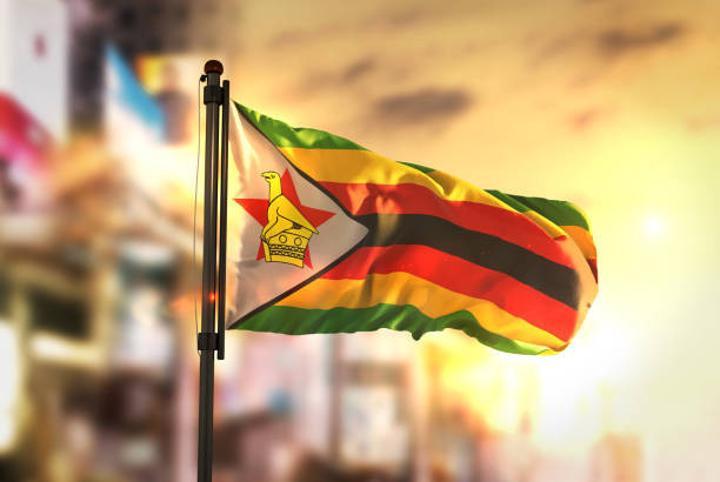By Paidamoyo Muzulu
Africa-Press – Zimbabwe. ZIMBABWE has become adept at burying bad news. We are in a stage where we have the feel good stories.
However, burying denotes creating a cemetery for bad news and cemeteries by their own nature are visible to people.
At every turn and opportunity, Zimbabwe has been lectured about the growing economy.
Millions of investments into different sectors of the economy.
Zimbabwe being the best performing economy in Sadc.
However, the bad news is this growth is not inclusive.
The rich have become ultra rich, while those lucky to be employed in the formal sector are living on slave wages and cannot afford medical care when they fall ill or send their children to school.
So far, the Zimbabwean government has been indifferent to the plight of workers.
It has not injected enough funds into public education and public health.
The little that is allocated into these sectors is diverted to fund ivory tower projects.
Zimbabweans were this year told that funds meant for Basic Education Assistance Module (Beam) were last year diverted to fund preparations for the hosting of the Sadc Heads of State and Government Summit that was held at Parliament in Mt Hampden.
There was no outcry from the citizens.
It was normal because every citizen was for one year to be Sadc chairman.
Never mind if the people could chair or table a reasonable agenda.
Zimbabwe loves the pomp and fanfare of ceremonies, to parade in luxurious robes bought by money that was intended for education.
The Spotlight Report: Lead for Foundational Learning in its recent report says 83% of pupils lack minimum proficiency in reading and maths by the time they complete primary school.
The report argues that one in six children in Zimbabwe complete primary school with the minimum proficiency in reading and maths.
These are damning statistics.
However, they don’t mean much to the country’s leadership since their children and those of the rich study at private institutions.
They are not worried by the millions of the poor who are struggling to break the vicious cycle of poverty.
The United Nations Children’s Fund (Unicef) released a statement in 2023 that said 580 000 children between the ages 5 and 15 were not in school.
The report came at the tail end of the COVID-19 pandemic.
Once again, Zimbabwe was exposed for not doing enough to fund basic public education or keep its children in schools.
While COVID-19 devastated many economies across the globe, bared ultra-nationalism from the developed countries and disconcerting racial slurs, the main effects were on the future — particularly children who missed their studies.
The Zimbabwe National Statistics Agency recently produced a sobering report on education and employment of youths.
It said 18% were not in school, not trained and untrainable.
This is very close to one in five youths being useless, dull future and potentially adding to the growing number of people who need State assistance to survive.
This is the same country that has a staggering 89% of its workers in the informal sector.
A sector that is not well regulated, has no pensions and medical aid.
Most of them are on zero-hour contracts and are not protected by labour laws.
Beyond the grim statistics, this is about real people.
Some are married and have families to take care of.
These are the wretched of the world, cannon fodder for selfish politicians.
The bad news does not end there.
It goes right into the hovels of the poor working class and peasants.
Most are not connected to the national power grid.
The few who have access to it are faced with rolling blackouts, sometimes running to 16 hours a day.
While the Speaker of the National Assembly, Jacob Mudenda frothed at the mouth warning that anyone found to have deliberately sabotaged President Emmerson Mnangagwa’s national address on Tuesday would rue the day he/she was born, the reality is Zimbabwe has an energy deficit.
The leaders did not want to acknowledge that under their leadership, Zimbabwe currently has an electricity deficit of 2 000 megawatts.
This is bad news that wants to be buried, except the cemetery is growing and very visible to all citizens.
The cemetery of bad news stared right in the faces of national leadership at an uncomfortable moment.
A moment that the President wanted to lecture the nation on the good news of economic growth, growing list of regional chairmanships and growing Chinese investments into mining.
There was no chance for bad news of environmental degradation, pollution of rivers and air pollution.
These are mere allegations made by people who are against Zimbabwe’s burgeoning economy.
The Treasury too has buried the bad news of rising national debt.
It simply rebased the economy and boom, national debt as ratio to GDP dropped from over 70% to 44%.
This is despite the fact that Zimbabwe’s debt, according to the International Monetary Fund, now stands at US$23 billion against the massaged Treasury figure of US$21,6 billion.
The dark tales are tall, but they have to be told.
They have to be juxtaposed against the good news.
A reminder to the work that our politicians still need to do for Zimbabwe to become a true Upper Middle-Income country.
It should be an upper middle-income country with workers earning decent salaries, having pensions and medical aid.
Zimbabwe should be an upper middle-income country full of educated and trained youths.
A country with children who cannot only read and write, but also comprehend.
It should be an upper middle-income country that has homes having electricity and potable water, clean streets and safe to move at night.
Neoliberal matrices of economic growth hide the ugly truth, but we cannot escape it if the Treasury is headed by a Chicago Boy and a don.
The narrative has to change, Zimbabwe cannot afford to continue burying the bad news.
Source: NewsDay
For More News And Analysis About Zimbabwe Follow Africa-Press






